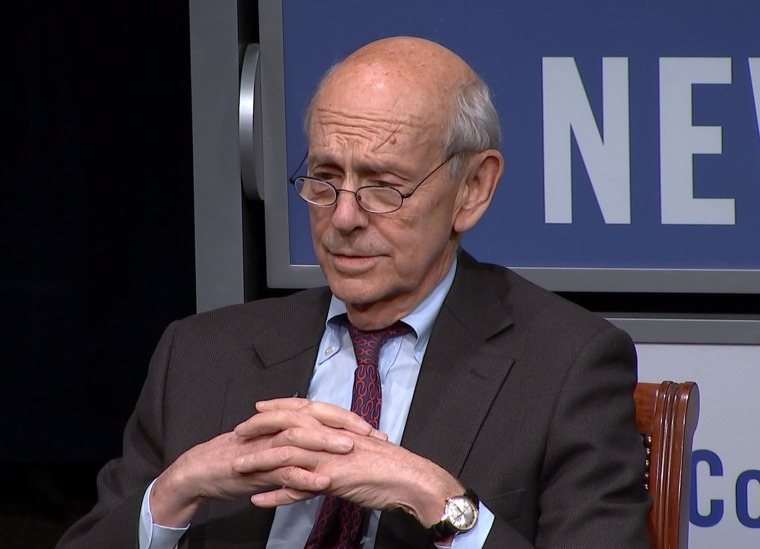Supreme Court Justice Stephen Breyer said Thursday that he doesn't expect the death of Justice Antonin Scalia to drastically change the high court's output, noting that only a small number of cases turn on a tie-breaking vote.
"We'll miss him, but we'll do our work," said Breyer, who was close with Scalia despite often being on opposite ends of the jurisprudence spectrum. "The cases come along."
Breyer spoke with NBC News justice correspondent Pete Williams in a conversation at the Newseum in Washington D.C. to promote his latest book. He praised Scalia's wit and humor, and recalled their good-natured debates on their approaches to interpreting the Constitution: Breyer favors a more liberal interpretation, while Scalia was a Constitutional originalist.
"We all miss him. He was good friend," Breyer said.
Breyer didn't dwell long on the court's current predicament, in which it is left with only eight members until President Obama nominates Scalia's successor and the Senate approves that choice. The arrangement is temporary but indefinite, because Republicans have vowed only to consider a nominee submitted by the person who succeeds Obama next January.
During that time, in 4-4 votes the lower court ruling will remain in effect, with no precedent, legal experts say.
In his brief remarks on the subject, Breyer pointed out that, historically, half of the high court's decisions are unanimous, and maybe 20 percent turn on a 5-4 vote.

"For the most part, it will not change," he said.
"It looks like you will be at eight for a while though," Williams said.
"That’s your determination," Breyer replied, to laughter.
Related: Supreme Court Holds First Session After Justice Scalia's Death
Breyer also discussed the court's rulings on terrorism suspects held at Guantanamo prison in Cuba, which Obama has vowed to close. Comparing the situation to a 1944 Supreme Court decision upholding President Franklin Roosevelt's creation of Japanese internment camps, Breyer said the court has fallen more on the side of habeus corpus, the Constitutional right to seek relief form unlawful imprisonment.
He paraphrased Justice Sandra Day O'Connor, who wrote in 2004's Hamdi v. Rumsfeld that "war is not a blank check for the president when it comes to the rights of the nation's citizens."
